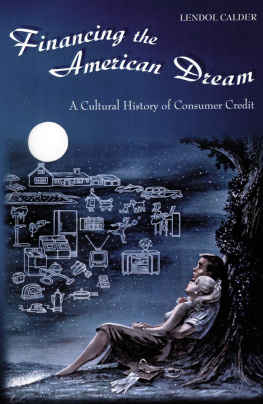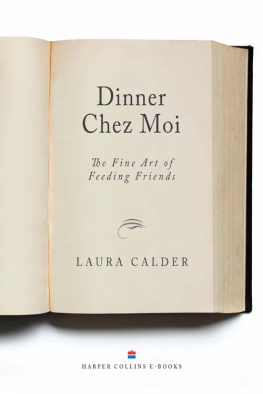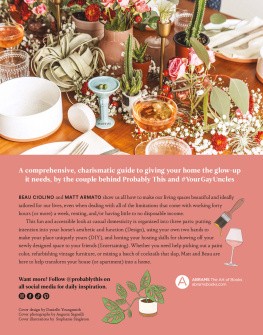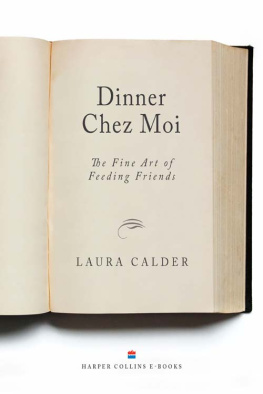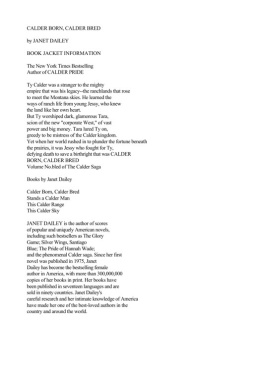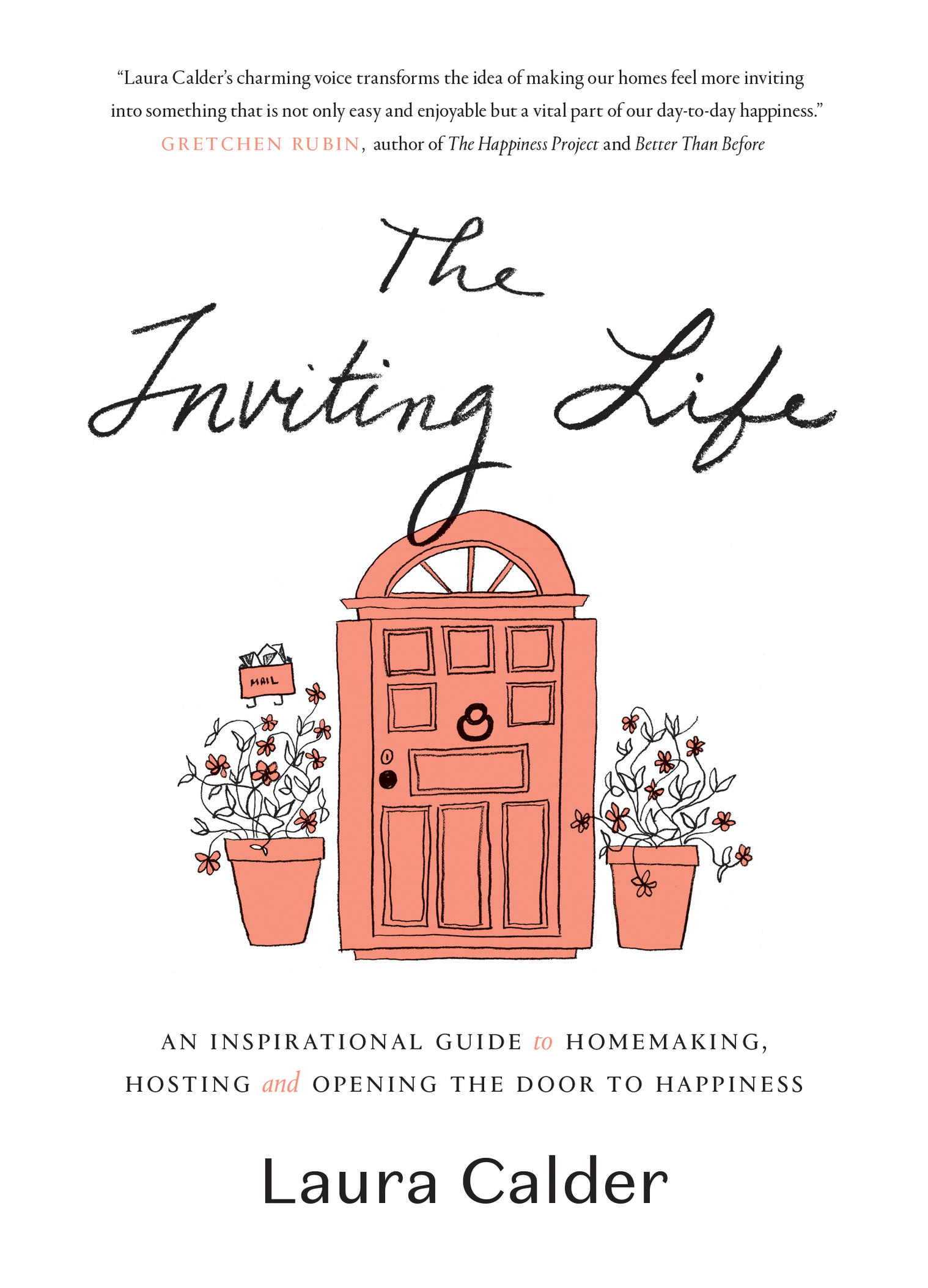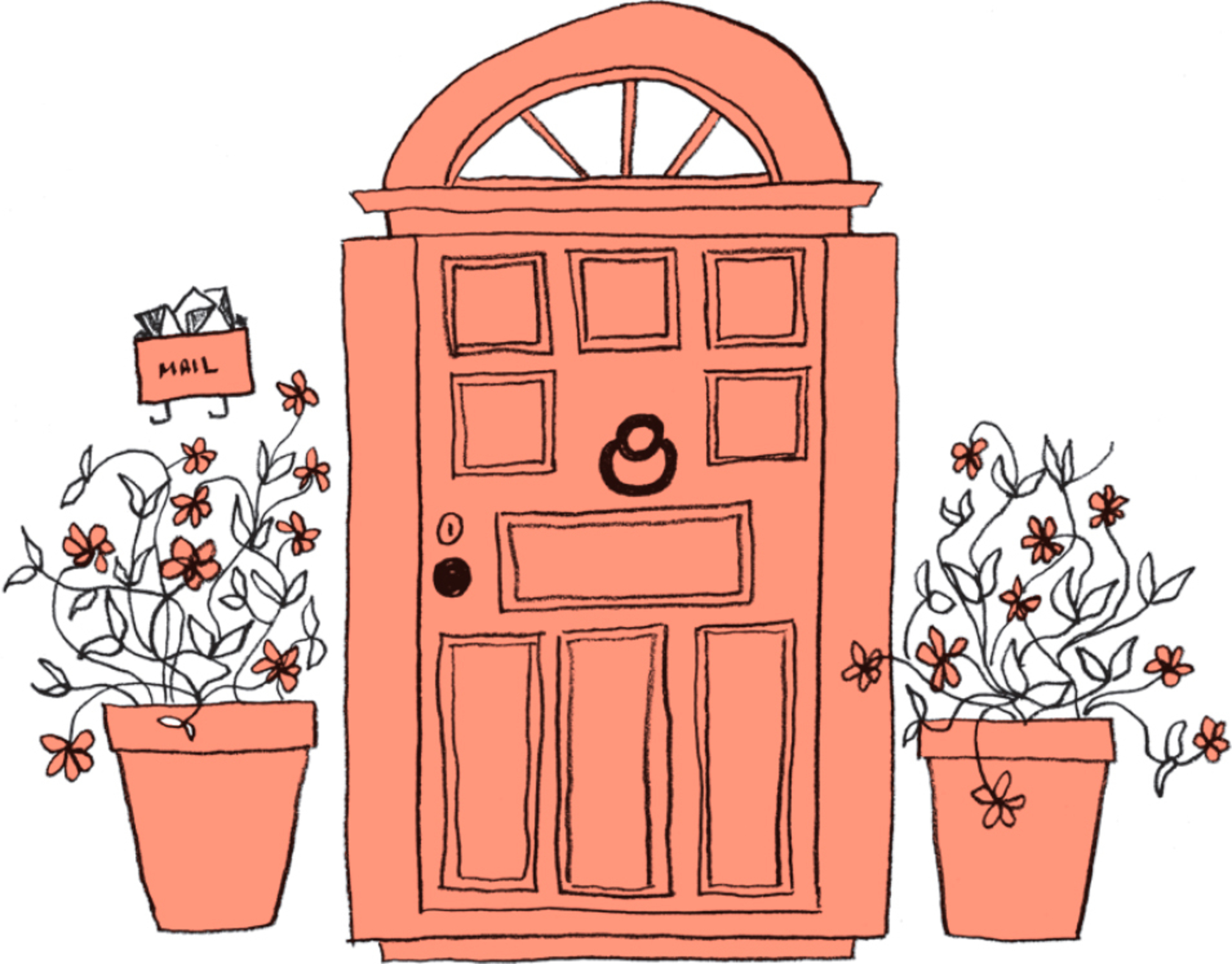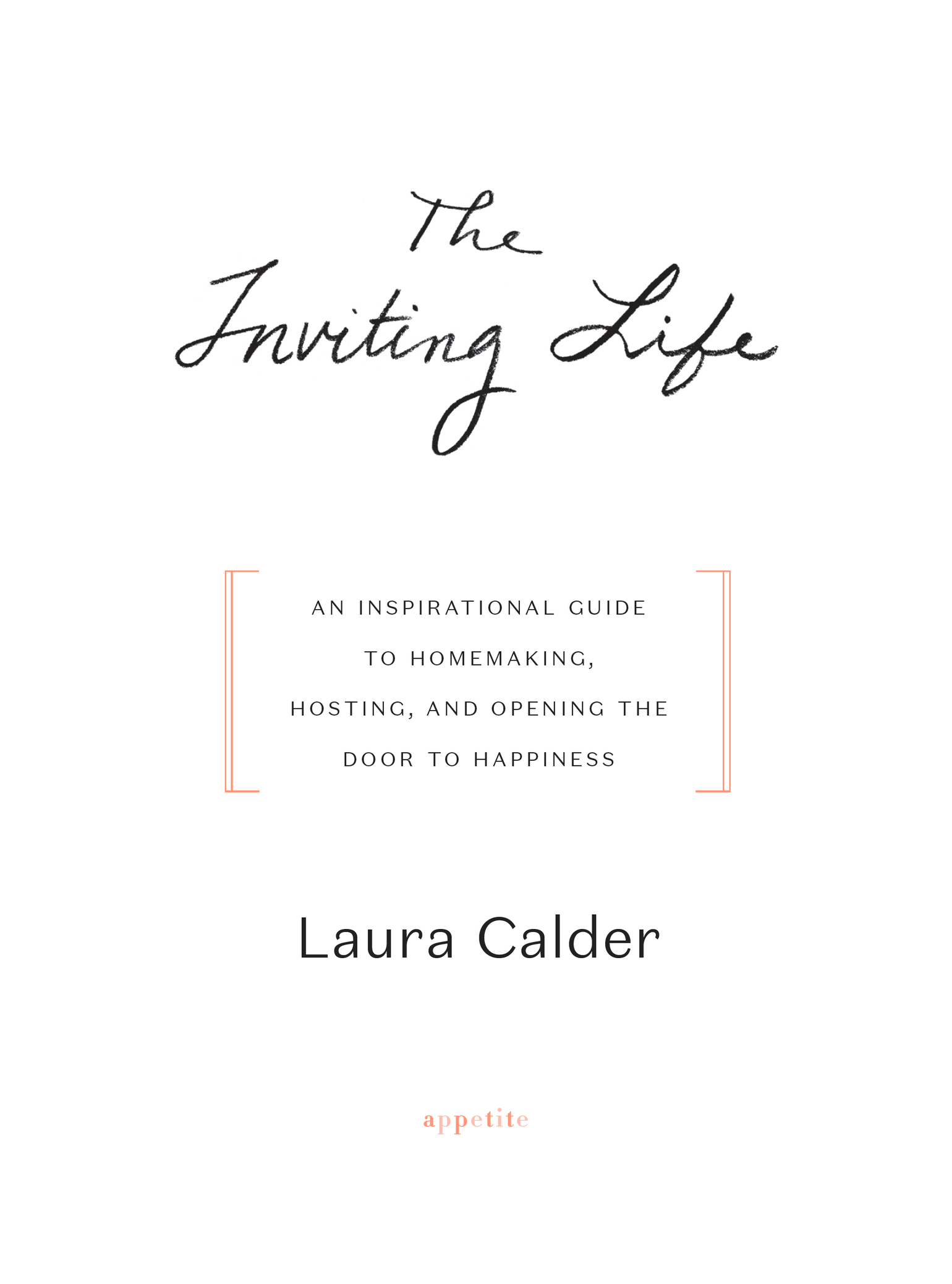Contents
Copyright 2017 Laura Calder
All rights reserved. The use of any part of this publication, reproduced, transmitted in any form or by any means electronic, mechanical, photocopying, recording or otherwise, or stored in a retrieval system without the prior written consent of the publisheror in the case of photocopying or other reprographic copying, license from the Canadian Copyright Licensing Agencyis an infringement of the copyright law.
Appetite by Random House and colophon are registered trademarks of Penguin Random House LLC.
Library and Archives Canada Cataloguing in Publication is available upon request.
ISBN: 9780147530523
eBook ISBN: 9780147530530
Book and cover design by Jennifer Griffiths
Cover art and drawings throughout by and Laura Calder
Published in Canada by Appetite by Random House, a division of Penguin Random House Canada Limited.
www.penguinrandomhouse.ca
v4.1
a
This book is dedicated to
PETER
my beloved co-host in life.
LAURA CALDER was born and raised in Eastern Canada. She is the author of four cookbooksFrench Food at Home, Dinner Chez Moi, Paris Express, and French Tasteand a contributor to The Globe and Mail. She wrote and hosted the internationally aired series French Food at Home, which won a James Beard award. After a decade spent in France, Laura now lives and hosts in Toronto.
WWW.LAURACALDER.COM
Do remember to forget
Anger, worry and regret
Love while youve got love to give
Live while youve got life to live
PIET HEIN


An Invitation
Id shrivel up and become plant food if I didnt entertain. Its how Ive always connected myself to the world and made sense of it (even back in the days when I was dressing my little brother up with a tea cozy on his head to be my matre d).
Im fond of the term host and its suggestion of benevolent leadership. A host is someone who steps forward and takes charge, almost always of things pleasing and good; his or her aim is to create a world in which everyday life is happier, more civilized, and delightful and where cooking, making a home, and entertaining are engaging, uplifting, meaningful, and valued. In short, a good host makes a true vocation out of living what I call the inviting lifethe kind of life one wants to wake up to and, in the words of Auntie Mame, Live! Live! Live!
To me, the inviting life means two things. Its a life that involves a lot of what we rather inadequately call entertaininga social life, if you will. And its a life in which we approach the ordinary with a desire and determination to turn it into something lovely. This is not a frivolous desire, and it neednt be an extravagant one. It has very much to do with everyday activities and encounters.
Ultimately, living an inviting life is about being open, curious, and caring. Its about being attuned to beauty, ideas, creativity, and delight, especially where these potential pleasures tend to hide awayunder a pile of dirty laundry, for exampleand when our souls need them most. (Desperate times call for desperate pleasures, as television critic Emily Nussbaum once tweeted.)
This is not a book full of strict rules and magic formulas that will turn us into the next Palm Beach society sensation. In what I think is a rather hospitality-hungry era, we might focus, instead, on finding the inspiration to do whatever we can in everyday life to make the places where we livewherever they may bewelcoming, restorative, and uplifting for ourselves and for anyone who enters into our sphere.
A Bit of Backstory
My family would tell you I was born to host. Since childhood, Ive been obsessed with cooking and with feeding people. As soon as I could sit up by myself without tumbling sideways, I was on the counter beside my mothers mixing bowls, taking it all in. Once I could write, I went so far as to interview neighbours, taking a notebook whenever we went visiting and later transcribing the results of my investigations onto 1970s recipe cards (Lindas slush and Vidas hole whit rolls are still preserved in my wobbly scrawl).
There was the requisite whoopee-pie phase, but that soon evolved into masterpieces such as Chicken la Dijonnaise and Marquise au Chocolat, racy recipes from the pages of Gourmet magazine and a Readers Digest cookbook. Before long, elaborate dinners for the family became my specialty. And I hadnt just become ambitious about the food, either: by the time I was a teenager, Id grown into a proper little tyrant when it came to table settings and etiquette (Id discovered Emily Post and Amy Vanderbilt, to the despair of my two brothers).
In a way, all of this was innocent, theatrical play on my part, but at the same time, I was aware even then that there was power in feeding people, that on the occasions I took over from my mother to cook for fun, I was somehow helping to keep our household together and make everybody happy. That gave me purpose and satisfaction. I was also aware that the way we ate said something about who we were, and I was determined that everything should be more civilized, more elegant. I instinctively sensed that these things started at the table.





